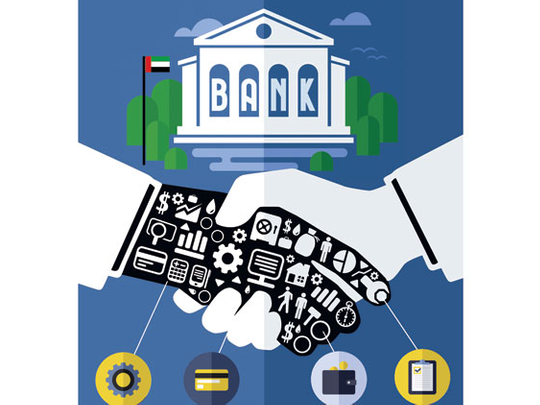
The contribution of the SME sector to the non-oil GDP of UAE stands at 60 per cent and the hope of the government — not an unachievable one — is that it will increase to 70 per cent by the end of this decade.
A 2013 Khalifa Fund SME Financing White Paper says 94 per cent of the 300,000 enterprises are SMEs. That makes it a staggering 282,000 companies.
Even as the SME sector is flourishing it is under-banked, a fact acknowledged by bankers, trade finance experts and SME industry bodies. Here we are not talking about start-ups, the earliest form in the buildup to be SMEs, which require a different set of financing in the form of angel investors, venture capital funds and development institutions such as the Khalifa Fund.
Our focus is on SMEs, which have had a run of at least two or three years, with clear revenue streams, making profits or close to doing so and planning to scale up.
Lack of access to credit remains a major problem, despite more banks and financial institutions focusing on the SME segment compared to five years ago. Today, the loan portfolio of banks in relation to SMEs does not exceed more than 3 per cent, according to a recent statement by the chief executive of Dubai SME.
Low levels of disclosure and poor quality of financial information provided by SME borrowers are the most common, and indeed legitimate, issues banks cite as hindrances to improved financing. However, with the UAE Central Bank deciding to set up a credit bureau for corporates, authentication of financials will to a considerable extent mitigate the problems of disclosure and quality of information.
Expectations
To enlarge the financial net, it is equally important for banks to understand what the SMEs are looking for. There are the smaller and bigger SMEs, each having their own set of expectations when approaching a bank for funding.
At Noor Trade, for example, we define smaller companies as those having anywhere between Dh2-50 million turnover. Their requirements vary from a business financing to commercial vehicle financing, or commercial mortgage for a property.
The larger companies comprise those with a turnover of Dh50 million upwards. Their requirements are more sophisticated — streamlined vanilla, but with added structure.
The smaller ones are interested in value, that is how much finance the bank is willing to provide to them and whether it would be able to meet the needs; the rate, whether it is competitive or not; the turnaround time — from the point of making an application and submitting all documents to the point of having an offer letter – and, lastly, the service, that is whether the bank is going to treat the client as part of a herd or going to provide some special treatment.
When it comes to the bigger segment of SMEs, all these elements are a given. In addition, behavioural factors come into play.
Recognition is one. Is the bank accommodating enough? In other words, if the client has an issue at a certain point of time, or a repayment delay due to cashflow problems, is the bank going to assist?
Second is whether the person is knowledgeable enough about the client and their industry to advise appropriately to take the finance application forward.
Most SMEs are owner-managed and the resources to manage a banking relationship, through a large finance department, are not there. The bank that is able to provide financing and other services in an easy to access, transparent and consistent manner has the ability to become an important partner.
SMEs, as well as banks, should think holistically when it comes to opting for and selling of products. Today SMEs shop for one product in one place, thinking the rates will be cheaper if one goes to different providers. That is not necessarily true.
Overall relationship
In fact an SME could leverage its position saying that because it gives substantial business to the bank, what will the bank give in return? An approach based on overall relationship, instead of specific product pricing, should enable SMEs to benefit from greater overall value in their banking relationships.
It is not just business or vehicle financing that an SME is looking for when planning to expand. SMEs have their insurance and treasury needs. While insurance is still a niche product, banks would do well to think about and make it more accessible as part of a bouquet of products made available to an SME.
Another part of the equation is wealth creation and who manages that. SME owners are creating wealth for themselves as they go along. The fear of putting all their eggs into one basket — banking with the same institution for all purposes — is unfounded.
It is as much a give and take between the SMEs and banks. The quicker both realise this, the better the results will be for them and for the overall UAE economy.
The writer is the head of corporate banking, Noor Bank.












